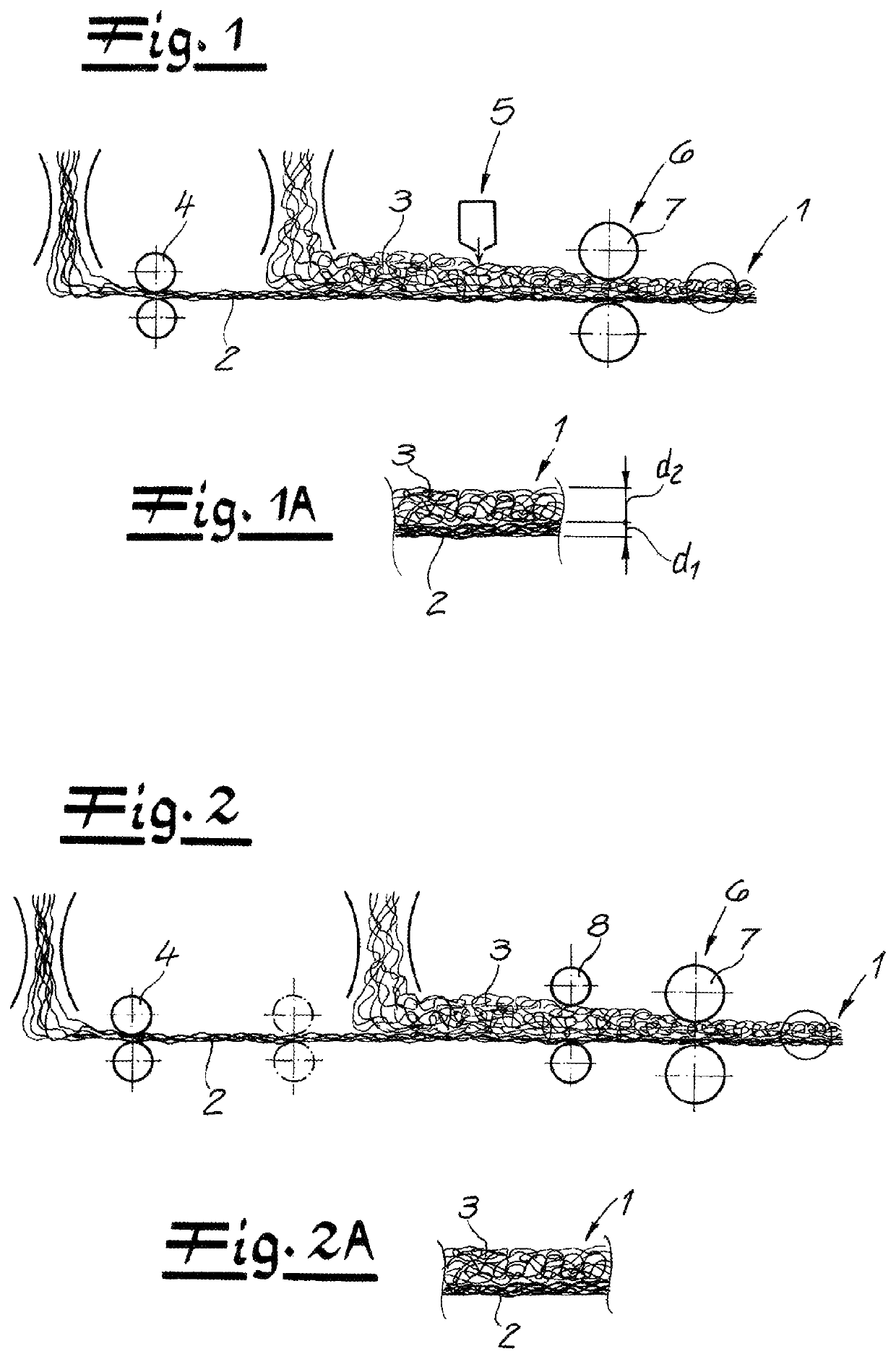Laminate and method of making same
a laminate and nonwoven technology, applied in the field of nonwoven laminates, can solve the problems of inability to adequately withstand higher forces and/or tensile forces, mechanically less stable, flat and stiff spunbond nonwovens
- Summary
- Abstract
- Description
- Claims
- Application Information
AI Technical Summary
Benefits of technology
Problems solved by technology
Method used
Image
Examples
Embodiment Construction
[0042]As seen in the drawing, a laminate 1 has a plurality of spunbond layers 2 and 3 made from continuous filaments. The laminate here preferably consists of two spunbond layers 2 and 3. The continuous filaments are advantageously made of a thermoplastic polymer in the embodiment.
[0043]In the embodiment according to FIGS. 1, 1A, 2, and 2A, non-crimping and / or low-crimping continuous filaments are preferably deposited to form the first spunbond layer 2. These continuous filaments preferably have a coaxial and / or symmetrical core-sheath configuration and / or cross-sectional configuration in the embodiment. The core is advantageously made of polypropylene and the sheath is preferably made of polyethylene here, and the weight ratio of polypropylene to polyethylene is preferably 70:30 in this embodiment. The higher amount of polypropylene in the core here contributes to the stability and / or strength of the first spunbond layer 2. In the embodiment according to FIGS. 1 and 2, it is recomm...
PUM
| Property | Measurement | Unit |
|---|---|---|
| total thickness | aaaaa | aaaaa |
| thickness | aaaaa | aaaaa |
| thickness | aaaaa | aaaaa |
Abstract
Description
Claims
Application Information
 Login to View More
Login to View More - R&D
- Intellectual Property
- Life Sciences
- Materials
- Tech Scout
- Unparalleled Data Quality
- Higher Quality Content
- 60% Fewer Hallucinations
Browse by: Latest US Patents, China's latest patents, Technical Efficacy Thesaurus, Application Domain, Technology Topic, Popular Technical Reports.
© 2025 PatSnap. All rights reserved.Legal|Privacy policy|Modern Slavery Act Transparency Statement|Sitemap|About US| Contact US: help@patsnap.com

